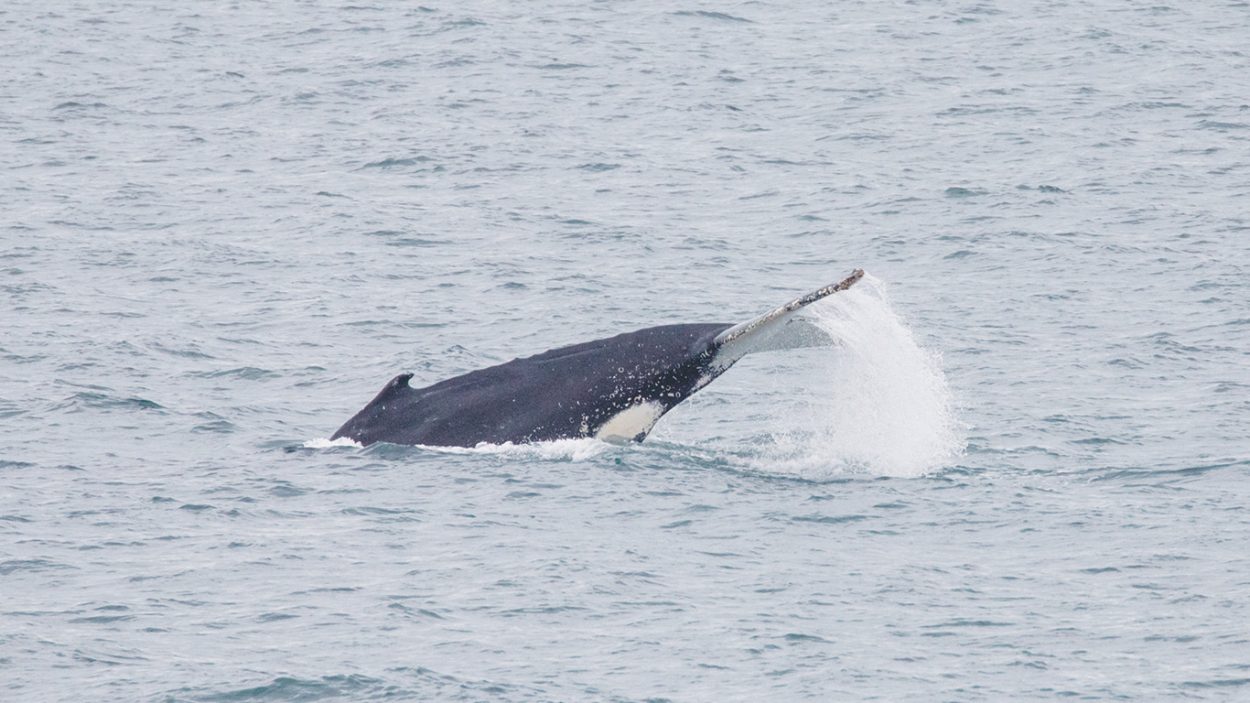WILDLIFE advocates are raising urgent concerns about boaters disturbing large whales in Port Phillip Bay after reports surfaced that the mammals were being “chased and harassed” in the Bass Strait. There have been three sightings of humpback whales in the bay with two mature humpback whales thrilling onlookers as they swam past Seaford, Frankston, Mornington, and Mount Martha on 28 June.
Scientists from the Dolphin Research Institute’s Two Bays Whale Project confirmed the sightings, noting humpback and southern right whales were present in the waters during their northern migration, and each year, some pass through Port Phillip Heads and enter the bay.
“We are very concerned about the welfare of the whales if boaters approach too closely,” the institute’s executive director Jeff Weir said. “Recently, the Two Bays Whale Project has received numerous reports of humpback whales, killer whales, and southern right whales near the coasts of the Bellarine and Mornington Peninsulas and Phillip Island.”
Under state laws, boats should not deliberately approach large whales closer than 200 meters, and jet skis should maintain a distance of at least 300 meters. Penalties for violations can reach thousands of dollars. Weir said the approach distances were also in place for the safety of people and vessels, as whales likely weighed more than fifty times the average pleasure craft.
On the weekend of 5-6 July multiple boats had reportedly chased and harassed the whales for three days, and in one incident a vessel went between two whales, “splitting them up” according to social media reports. There were also reports of children approaching a young seal resting onshore and a drone being flown to chase a whale for footage.
Weir said the institute could not confirm these reports but added if its citizen scientists had photographs of unlawful behaviour with marine life, it would make reports through the state’s Conservation Regulator. However, he said recent incidents of dolphin harassment had been reported to the Conservation Regulator – which was an “ongoing issue” particularly in summer.
In terms of presenting the strongest evidence of wildlife disturbance, Weir said they needed multiple photos of a vessel’s registration as well as the vessel “repeatedly approaching” dolphins or whales if the matter was to be prosecuted.
Asked about the occurrence of whale harassment, Weir said it was his understanding that it had occurred in the Bass Strait, likely several kilometres off Cape Schanck.
The Conservation Regulator said it had received recent reports of whales being disturbed by boats in waters around the Bass Coast, “however we are unable to comment further on this active investigation”.
It also noted it had not received reports of whales being chased or disturbed in Port Phillip Bay near Mornington Peninsula from the weekend of 5-6 July.
The Dolphin Research Institute, a not-for-profit, has established a Whale Distancing program to help boaters act responsibly. The community can report sightings, and commit to Whale Distancing and support the institute’s winter appeal at: www.dolphinresearch.org.au.
The Dolphin Research Institute, a not-for-profit, has established a Whale Distancing program to help boaters act responsibly. The community can report sightings, and commit to Whale Distancing and support the institute’s winter appeal at: www.dolphinresearch.org.au.
First published in the Mornington News – 15 July 2025



